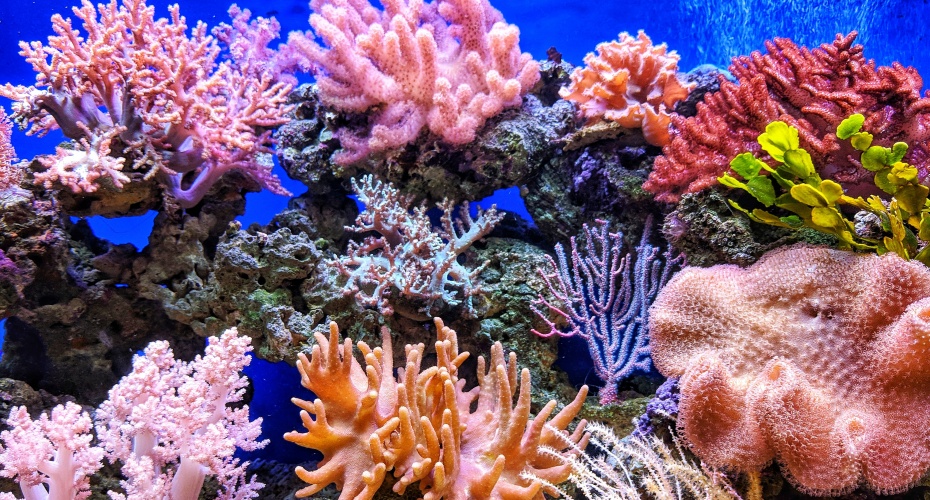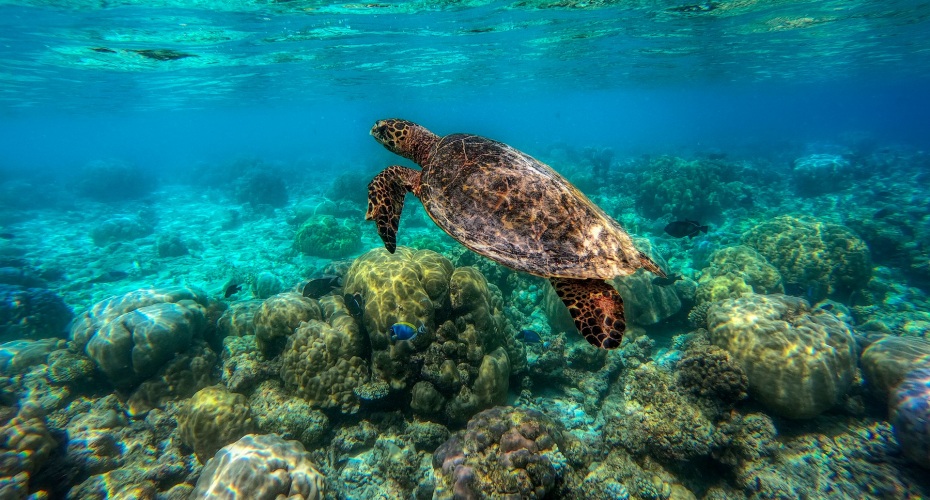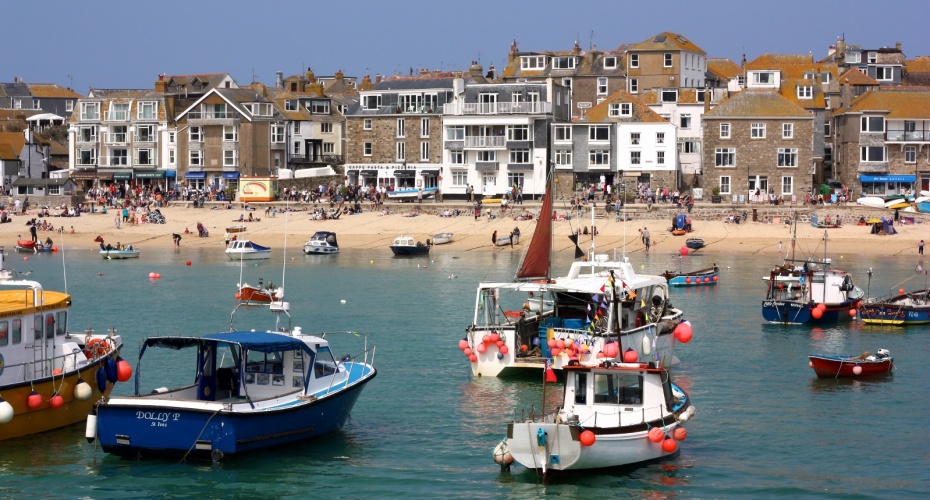
- £50 could provide a pack of silver filters for imaging and counting plastic debris in seawater samples
- £100 could purchase antibiotics which are used in the laboratory to assess whether environmental samples contain antibiotic-resistant bacteria
- £250 could provide a neuston net for conducting field work
- £350 could purchase agar, used to grow bacteria samples in the laboratory
- £2,000 could fund a two-week fieldwork trip
- £5,000 could provide a summer placement/student internship for three months
- £10,000 could provide a scholarship to enable a Master's student to study with our leading experts.
If you'd like to talk to us about supporting a particular area of marine research, please email alumni@exeter.ac.uk or call +44 (0)1392 723141.
Bring life back to our oceans
Oceans cover three quarters of the Earth’s surface. They drive the global systems that make the planet habitable; impacting rainfall, drinking water, weather patterns, coastlines, much of our food, and even the air we breathe.
More than three billion people depend on marine and coastal environments for their livelihoods. The global market value of marine resources and industries is around $3 trillion per year and marine fisheries directly or indirectly employ more than 200 million people around the world.
But the health of our oceans is in decline and the blue economy it supports is coming under increasing threat. Pollution and acidification is harming ecosystems and biodiversity at an increasing rate. Millions of tonnes of plastic enters the sea every year to the degree that, without change, will result in more plastic than fish in the oceans by 2050.
Saving our ocean must be a priority, and indeed one of the UN’s Sustainable Development Goals is to ‘Conserve and sustainably use the oceans, seas and marine resources’.
The Exeter Marine Fund has been designed to respond to the most urgent threats by bringing together small gifts to have a big impact when and where funding is needed. The Fund enables Exeter to continue to play a crucial role in monitoring and protecting our marine ecosystems and shape positive change in practice, policy and innovation.
The statistics describing the amount of plastic debris discarded into the environment each year are terrifying: a million pieces for every person on the planet, enough reaching the ocean floor to form a new layer in the fossil record. There are currently an estimated 5 trillion or more pieces of plastic in our oceans, more than the number of trees on earth.
The extent to which marine plastics accumulate in marine food webs, and the risk this poses to ecological and public health remained virtually unknown until a group of Exeter researchers brought the issue to the world's attention.
Professor Tamara Galloway's team at Exeter have carried out in-depth studies to reveal the devastating impact microplastic pollution will have on the health of humans and wildlife. Micro and nano plastics can be toxic to marine life, prevent animals consuming their natural prey, and are easily spread up the food chain - leading to starvation and death. It's estimated that people who eat a seafood diet could swallow up to 11,000 pieces of plastic each year.
Exeter Marine has played a pivotal role in highlighting how widespread this dangerous, non-biodegradable debris has become. Exeter is creating the blueprint for how governments respond worldwide, not only highlighting the use of microbeads in cosmetics (now banned by the UK Government) but also tackling the inefficient systems that underpin the modern "throwaway culture" that has led to the vast floating islands of plastic waste that are plaguing many of the world's oceans.
Plastic waste in the oceans also causes severe injuries and deaths to many species who ingest or are entangled by debris. Recent studies have revealed marine plastic pollution in 100% of marine turtle for example. Hundreds of thousands of sea turtles, whales, and other marine mammals, and more than 1 million seabirds die each year from ocean pollution and ingestion or entanglement in marine debris.
Healthy coral reefs are remarkably noisy places – the crackle of snapping shrimp and the whoops and grunts of fish combine to form a dazzling biological soundscape. Juvenile fish home in on these sounds when they’re looking for a place to settle. Reefs become ghostly quiet when they are degraded, as the shrimps and fish disappear, but a team of researchers at Exeter have found that by using loudspeakers to restore this lost soundscape, young fish can be attracted back again.
Fish are crucial for coral reefs to function as healthy ecosystems and boosting fish populations in this way could help to kick-start natural recovery processes, counteracting the damage we’re seeing on many coral reefs around the world.
University of Exeter academics and students have been working with a new community interest company to develop and alternative approach to sustainable fishing.
Sole of Discretion works with fishers using smaller boats, static nets and hand line fishing techniques, which help protect fish stocks and cause less environmental damage. The company pays a fair price for the fish they land to ensure that these methods are economical as well as environmentally sustainable.
Seaweed is a healthy, sustainable source of carbon-negative food with a large global market.
A collaboration between alumni business Cornish Seaweed Company, Westcountry Mussels, researchers from the University of Exeter and Plymouth Marine Laboratory is investigating methods of growing sugar kelp at large scale and measure the benefits to the environment that seaweed farms could provide. By integrating with existing shellfish aquaculture, the project will support the region’s producers in leading the way to provide food that is healthy, tasty and good for the environment.
The algae cultivation industry is set for expansion in the UK, as the health and nutritional benefits of seaweed consumption become clear. Providing a sustainable source of protein, omega-3, iron, a range of vitamins and minerals and other key nutrients, seaweed is expected to play an important role in new diets, including the increased prominence of plant-based diets in reaction to new data on food-related carbon emissions.
Tim van Berkel, Managing Director of the Cornish Seaweed Company, said; “Our success is a huge step towards creating a truly sustainable food and resource economy, and we are proud to be on the forefront of this important development.
"Five years ago hardly anyone had thought of seaweed as a commercial product. Now we are realising the enormous potential it has. From food and livestock feed to biofuels, bioplastics, pharmaceuticals, medicines and even clothing, there is hardly anything that seaweed cannot be used for.”
Seaweed cultivation is purported to have a wide array of environmental benefits, including mitigating harmful algal blooms (HABs) and providing habitats for marine species, as well as combating climate change.
In addition, seaweeds do not need fresh water, pesticides, fertiliser or land to grow on, and they have very fast growth rates, making them sustainability champions. Scientists at the University of Exeter and Plymouth Marine Laboratory are assessing these benefits, to gain an understanding of how new seaweed aquaculture developments would interact with their environment.
Blue Carbon is the term for carbon captured by the world's ocean and coastal ecosystems.
Some of these environments take in carbon at a much faster rate than forests on land and can continue to do so for millions of years.
Watch this video of Professor Callum Roberts of the Department of Ecology and Conservation, talking about the potential of Blue Carbon.



